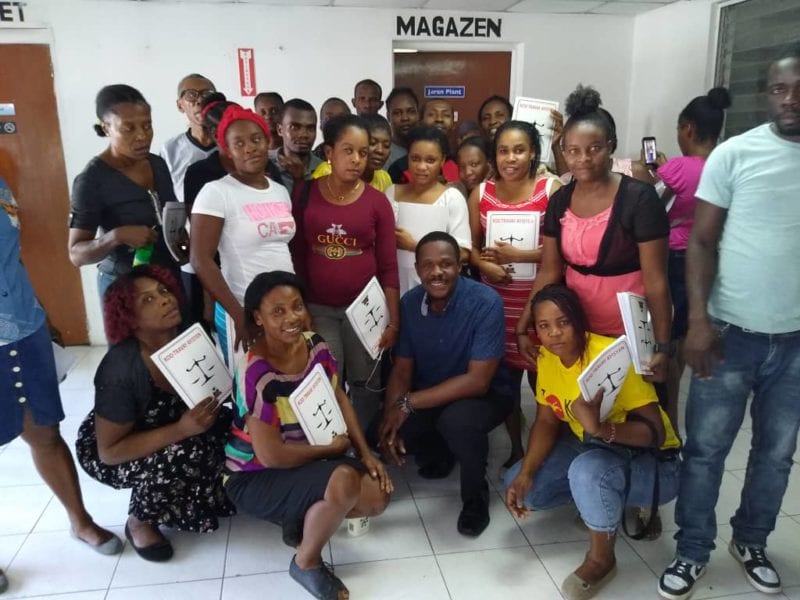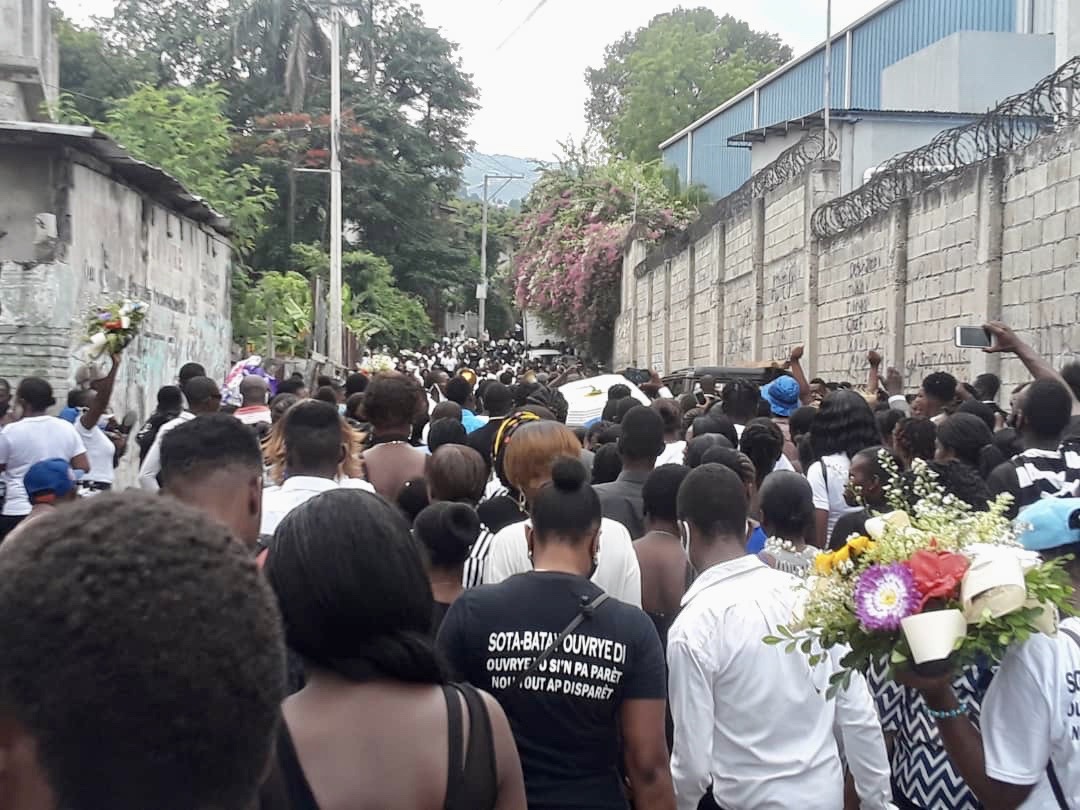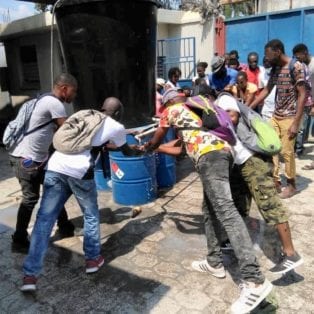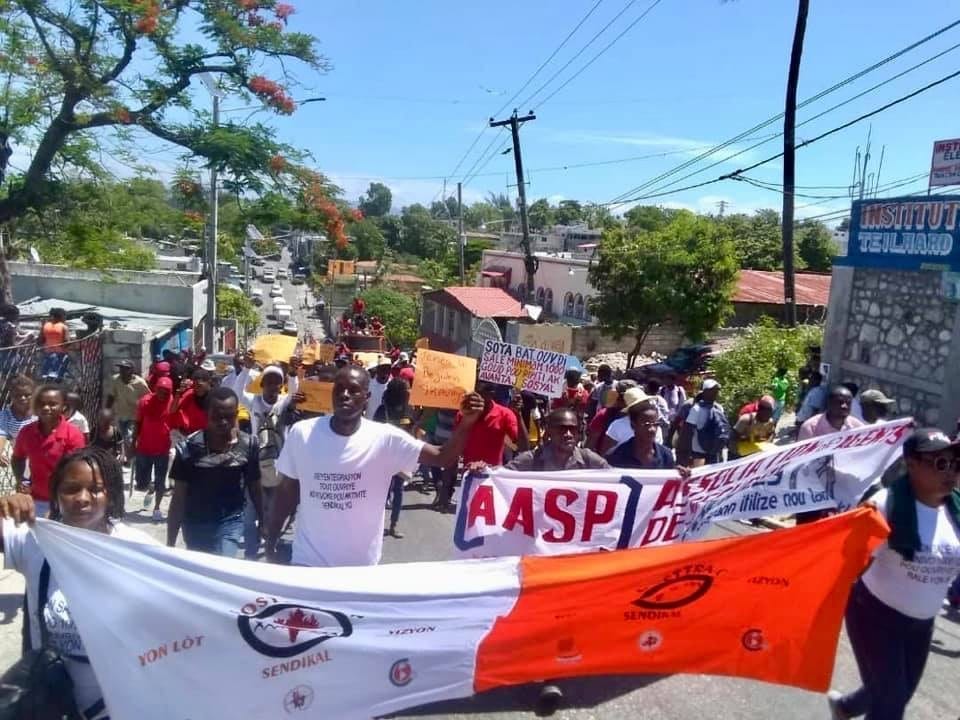Garment workers in Haiti are calling for action after Sandra René, a garment worker at the Palm Apparel factory, died due to pregnancy complications in early August. René was turned away from the hospital where she sought medical care because the factory had not paid...

In Haiti’s export apparel industry, the Solidarity Center joins with unions to educate workers about their rights under national and international labor laws. Credit: Olton Dorvelus
Haiti faces overlapping economic, political, and humanitarian crises, including severe political instability, gang violence, natural disasters, food insecurity and forced migration. Workers experience the collapse of government in their daily interactions with the institutions charged with enforcing labor rights or providing social services.
Gang violence and fuel shortages prevent workers from getting to work and hamper the delivery of materials to factories. After paying a significant portion of their wages for transportation, and enduring a dangerous journey, some workers are sent home without pay because the factory did not receive the materials needed for production.
In this context, garment workers struggle to make ends meet. The minimum wage in the garment sector is 685 gourdes ($5.36) per day. Solidarity Center studies repeatedly have demonstrated the daily minimum wage is far less than the estimated cost of living in Haiti. While the garment sector remains Haiti’s largest source of formal employment, significant job losses have left most garment workers facing diminished working hours or layoffs, threatening their ability to provide for their families. The reduction of full-time jobs also has reduced union membership, thereby threatening the ability of unions to negotiate better working conditions. Notably, there is only one collective bargaining agreement in the sector.
Despite the recent contraction of the garment sector, it remains one of Haiti’s fundamental pillars of economic growth and formal employment. With greater capacity to hold employers and government accountable to respect labor rights in the garment industry, garment sector unions contribute to creating a culture of accountability, justice, and the rule of law— critical elements for fostering democracy and enhancing the culture of peaceful conflict resolution in a country riddled with political fragmentation and violence
Back at Work, Haiti Garment Workers Risk COVID-19
As garment factories in Haiti begin reopening after shuttering for up to four weeks to prevent spread of the novel coronavirus, workers risk exposure during their crowded work commutes and at factories, while most have not received the wages they were promised during...
Haiti: Workers Still Struggle 10 Years After Earthquake
Ten years after a magnitude 7 earthquake destroyed a large swath of Haiti, killing more than 300,000 people and injuring another 1.5 million, workers and their families have not benefited from the billions in international aid that poured into country after the...



